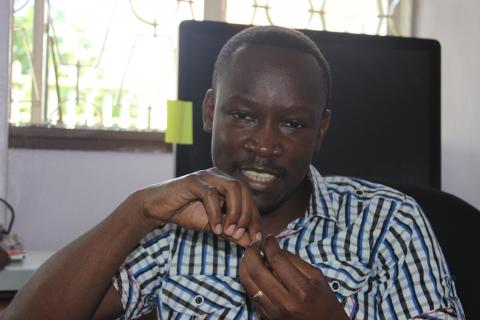Regulator UCC Playing Catch-up in Media Clamp Down – Dr. Kakooza
 Submitted by jbimokola on
Submitted by jbimokola on

Media and telecoms regulator, the Uganda Communications Commission-(UCC) is playing catch up in its regulatory role in the media, according to Dr. Fred Kakooza, a Multimedia Production and Broadcasting scholar in the Department of Journalism and Communication at Makerere University.
He was speaking to a Ugandan Radio news agency –URN in an interview in the wake of a unilateral decree on May 1, 2019 by the UCC Executive Director, Godfrey Mutabazi to 13 media houses to suspend 39 staff including news managers and producers for alleged breach of the minimum broadcasting standards.
According to Kakooza, now is the time to engage all stakeholders gainfully on the type of media that Uganda wants. He argues that most media houses in Uganda are giving more space to entertainment, music, comedy and sports and that media owners and managers want to play safe for fear of the repercussions.
“So I think it’s time to engage all of us, the academia, civil society, the public and government to come to a round table and have a conversation on the type of media that we want. And this in essence will help us to appreciate the functions of the media, how we can arbitrate in case something goes wrong and it will help us appreciate a knowledgeable society,” Dr. Kakooza observes.
He adds that; “We can only achieve this if we have a candid conversation which will also culminate into joint regulation where we have government on board, and we on board and every stakeholder on board and we can see how this media can grow.”
While the regulator stepped up its warnings to media houses citing bleach of minimum broadcasting standards especially after live coverage of Bobi Wine protests, Dr. Kakooza insists that this is part of local content, which shouldn’t be restricted. He observes that once there is media literacy from across government units and society, it will help media in growing content.
He observes for instance that dialogue; “Will help us grow programmes. Recently I think about five years ago, UCC passed a directive that requires the production of local content and of course the intention is to have voices represented, cultures represented to have basically diversity and plurality. So, you cannot achieve that if you are stifling the production of the same. By show casing the arrest of Kyagulanyi or court proceedings, that is who we are and that is the content that we have. Its contributing to the production of local content so we need to have a free press.”
Dr. Kakooza believes that there was no consultative process leading to the drafting of the minimum broadcasting standards. “I think in coming up with these standards, there should have been a consultative process between the media owners, producers, editors because these are the people that actually deal with production and dissemination of content on a day-to-day basis and they reflect what is happening in society. So you just sit and come up with such standards,” he discloses.
He contends that citizens look at UCC as an alien body trying to implement things they don’t understand. “But even if the standards have been made available, I think these standards have not been explained to the media operators that you know, by inciting people, this is what we mean, by broadcasting content is prejudice to something, this is what we mean such that people know.”
Adding that; “… if you broadcast the arrest of the honorable Kyagulanyi and it’s a live broadcast, you’ve not added anything there, it’s just factual reporting. As it looks now, everyone looks at UCC as an alien body that is trying to implement alien things that people don’t understand anyway.”
The National Association of Broadcasters –NAB, an umbrella body of radio and television station executives met to resolve the impasse but critics say despite the lengthy and heated deliberations what was achieved was only semantics: The journalists would not be suspended, but would only be asked to ‘step aside’ to allow investigations to continue.
Dr. Kakooza observes that the current standoff between UCC and media houses is a result of lack of a media council, which would be directly in charge of the regulation.
He contends for instance that it would have been different having a media person at the helm of the regulatory body as they would be able to understand how the industry operates.
“Most of the time UCC is playing catch up, yes, it’s playing catch up and I think sometimes it doesn’t know what needs to be done,” Kakooza observes.
“I also think as a country we are suffering from lack of media literacy and that is a very critical aspect that needs to be taken care of. Government does not understand what the role of the media is. Perhaps even society does not understand what the role of media is. Government may think media has to work for us and the population also thinks media has to work for us, yet the understanding is that media has to work for all of us,” Dr. Kakooza observes.
Adding that; “I also think it is a problem to have joined the function of broadcasting with the function of telecommunications. We should have had a Broadcasting Council with people who understand how the media operates to run these things. Because there is even a general feeling that the head of communications does not understand media operations and how media works, so there is a problem.”
Story by Davidson Ndyabahika
Originally Published at ugandaradionetwork.net
- Log in to post comments
- 1367 reads
